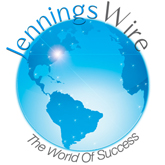Center for Character and Social Responsibility
Occasional Seminar Series (free event)
2:00– 3:30 PM
October 27, 2021
People, Places, Things: A comprehensive eco system model of workplace bullying in higher education
Associate Professor of Advanced Studies, Leadership, and Policy
College of Education and Urban Studies
Morgan State University
Senior Scholar
Center for Character and Social Responsibility
Join Zoom Meeting
https://bostonu.zoom.us/j/96901537734?pwd=cENKS2dPbWJLOEFkdVIwMmdMSzZqUT09&from=addon
In the past decade, several scholars have examined the antecedents and causes of workplace bullying. We have examined the psychological position of the bully, the involvement of leadership, and potential health problems. However, it appears to date there has not been a study that exams the ECO system of workplace bullying, that is how do all these elements work together to create hostile work environments in higher education that support bullying. Therefore, this lecture will offer an Eco system of workplace bullying in higher education, which is the result of 18 in-depth interviews with faculty. Not only will this lecture present the findings of the extended case study and resulting model, but we will also garner feedback from participants that may contribute to a future integration of the model.
Leah P. Hollis Ed.D., Associate Professor at Morgan State is a noted national and international expert on workplace bullying. Her recent book, Human Resource Perspectives on Workplace Bullying in Higher Education Understanding Vulnerable Employees’ Experiences was released by Routledge Publishers in May 2021. It empirically examines the structural and organizational problems that sustain workplace bullying and hurt junior faculty, women, people of color, and the LGBTQ community. Other notable work includes The Coercive Community College: Bullying and its Costly Impact on the Mission to Serve Underrepresented Populations, which was released by Emerald publications in 2016.






